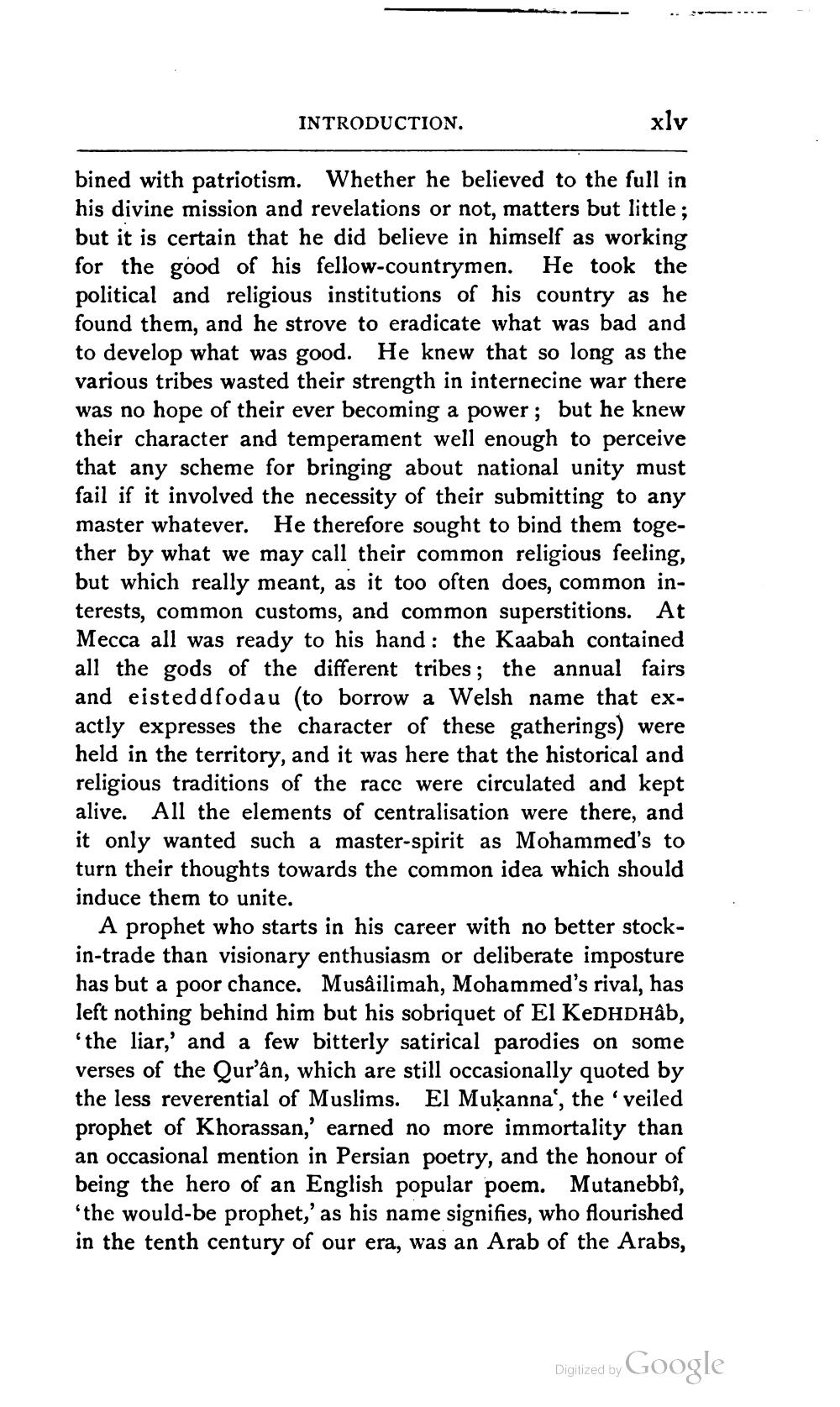________________
..
-----
INTRODUCTION.
xly
bined with patriotism. Whether he believed to the full in his divine mission and revelations or not, matters but little ; but it is certain that he did believe in himself as working for the good of his fellow-countrymen. He took the political and religious institutions of his country as he found them, and he strove to eradicate what was bad and to develop what was good. He knew that so long as the various tribes wasted their strength in internecine war there was no hope of their ever becoming a power; but he knew their character and temperament well enough to perceive that any scheme for bringing about national unity must fail if it involved the necessity of their submitting to any master whatever. He therefore sought to bind them together by what we may call their common religious feeling, but which really meant, as it too often does, common interests, common customs, and common superstitions. At Mecca all was ready to his hand : the Kaabah contained all the gods of the different tribes; the annual fairs and eisteddfodau (to borrow a Welsh name that exactly expresses the character of these gatherings) were held in the territory, and it was here that the historical and religious traditions of the race were circulated and kept alive. All the elements of centralisation were there, and it only wanted such a master-spirit as Mohammed's to turn their thoughts towards the common idea which should induce them to unite.
A prophet who starts in his career with no better stockin-trade than visionary enthusiasm or deliberate imposture has but a poor chance. Musailimah, Mohammed's rival, has left nothing behind him but his sobriquet of El KeDHDHâb, 'the liar,' and a few bitterly satirical parodies on some verses of the Qur'ân, which are still occasionally quoted by the less reverential of Muslims. El Muķanna', the 'veiled prophet of Khorassan,' earned no more immortality than an occasional mention in Persian poetry, and the honour of being the hero of an English popular poem. Mutanebbî, 'the would be prophet,' as his name signifies, who flourished in the tenth century of our era, was an Arab of the Arabs,
Digitized by
Digitized by Google




